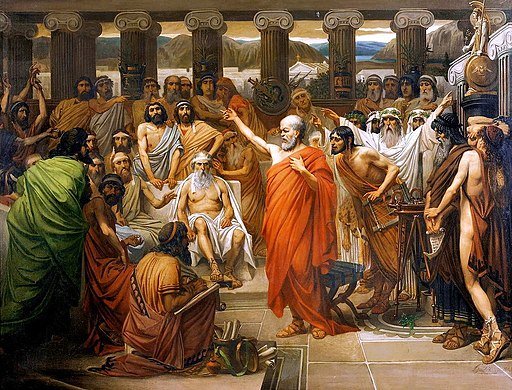"Collective action" is a central concept in sociology and other social sciences. Collective action can designate for instance an organized business activity, or a pro-bono activity in an organized setting (like an NGO), or a public service activity.

source
Upstream of collective action, "politics" refers to activities aiming at triggering and orientating collective action. Political activities try to select the objectives of collective action, and the means and resources to be allocated. Political processes are also referred to as "governance". In as much as "politics" is not the preserve of a single individual, it is a "collective action" itself. If we can think of more than one political objective, we can easily see that there has to be "politics of politics", in order to decide what political objectives to prefer and how to allocate resources among several desirable objectives.
Downstream of collective action, "the law" tries to provide a predictable framework for collective action, to check that the political decisions have been respected and potentially mete out punishment if they have not. The law also helps society record the outcome and learn from the process of applying political decisions in order to improve future collective action as well as future political action.
If we look at politics, we can identify at least two distinct objectives:
- Determining criteria, and a system for selecting the right collective actions and allocating them appropriate resources.
- Becoming the one, or being among those who get the most say in determining those criteria, shape that system and have the most influence in the resource allocation.
The first political objective above has to do with collective thinking and debating and shaping a consistent set of ideas - the ideology; and then to deriving practical recommendations from those ideas - creating policies. The branch which sets this as its primary objective has been sometimes called "political philosophy"
All good thoughts and ideas mean nothing without action
Mahatma Gandhi
The second political objective has more to do with acting. This is what most politicians are routinely engaged in doing, whether overtly or otherwise. Although loath to admit it, their main driver is "becoming King" (figuratively speaking) or at least entering King's court. The branch which sets this as its primary objective is sometimes called power politics.
We all know what to do, but we don't know how to get re-elected once we have done it.
Jean-Claude Juncker
Both action and thought are needed for politics to be beneficial to a society. Yet the fact that we can identify more than one objective transforms politics itself into a collective action, therefore subject to the classical "collective action problem".
Classic Collective Action Problem: A situation in which several actors have a common goal that would justify acting together collectively, but the individual actors face incentives that undermine their effort, particularly in tandem with others.
If "being well governed" is the most important determinant of the stability and prosperity of a society, and it is understood that you need both good "King" politicians and good "Philosopher" politicians for that, then the problem to solve becomes: how to get the balance right between the King and the Philosopher?
But according to Plato, the philosopher should be the king because the dominant trait of a philosopher is intellect/wisdom.
So how do you interpret, when the philosopher is the king, a perfect convergence or a perfect balance or otherwise........???
Well, I would gladly agree with Plato, if only there was a way to enforce that. In a hereditary monarchy you may, by sheer luck, get a philosopher to mount the throne. But in our democracies getting to be "King" or even getting close to the King requires focus, determination, ruthlessness and a set of skills that are almost the opposite of those of a philosopher. In that respect, our democratic societies basically ensure that only people with a deep craving for power (something you won't find in a philosopher) will get the power ...
That means the "capacity of organization" prevails over the "intellect" in democracies.
According to Mosca, the distinguished characteristic of a ruler is "capacity of organization". According to Pareto talent should be the quality of elites.
There is an unorganized majority and an organized minority and there is constant competition between the two. When the unorganized majority gets organized, they tend to become rulers and compete with the organized minority to become rules.
I found a PDF stranded in a corner of the internet, apparently from a political science / socilogy class at Princeton:

Would you please share the pdf link, I would love to read it thoroughly. Thank you.
Sure: https://scholar.princeton.edu/sites/default/files/ccameron/files/getting_organized_v3.pdf
Excellent! 'Loved reading this text!
Thank you!
I am glad to hear for reading your post,,,I think I am so close here and will be there..
Congratulations @sorin.cristescu! You have completed the following achievement on the Hive blockchain And have been rewarded with New badge(s)
Your next target is to reach 83000 upvotes.
You can view your badges on your board and compare yourself to others in the Ranking
If you no longer want to receive notifications, reply to this comment with the word
STOPCheck out our last posts:
Support the HiveBuzz project. Vote for our proposal!